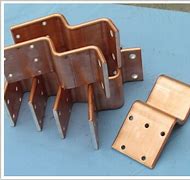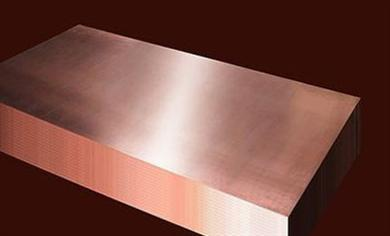**Is Your Copper Gas Line Safe? The Shocking Truth About Electrical Bonding!**
(Does Copper Gas Piping Need To Be Bonded)
Picture this: You’re in your basement, staring at a network of copper pipes snaking along the ceiling. One carries gas to your stove, another feeds water to your shower. But wait—those shiny copper tubes look harmless. Why would they need anything fancy like “bonding”? Let’s break it down without the jargon.
First, bonding isn’t about glue or tape. It’s about electricity. Metal pipes, including copper gas lines, can accidentally become pathways for stray electrical currents. Imagine a lightning strike nearby or a faulty wire in your home. Electricity will hunt for the easiest route to the ground. If your copper gas pipe isn’t bonded, it might just volunteer for the job.
Here’s the problem. Electricity and gas don’t mix. A spark near a gas leak could turn your cozy kitchen into a disaster zone. Bonding connects metal pipes to your home’s grounding system. This gives stray currents a safe exit, reducing the chance of shocks, fires, or explosions.
Building codes back this up. Most regions require bonding for gas lines made of conductive materials like copper. The rules aren’t just bureaucratic red tape. They’re based on decades of accidents and near-misses. Skip bonding, and you might fail a home inspection. Worse, you’re gambling with safety.
How does bonding work? A copper wire links the gas pipe to your electrical panel’s grounding rod or another bonded metal system. This creates a unified path for electricity to follow. Think of it like a safety net. If something goes wrong, the net catches the problem before it hits you.
Some homeowners assume older houses are exempt. Not true. Even if your copper gas lines were installed decades ago, bonding matters. Older systems might lack modern safeguards, making bonding even more critical. Check with a licensed electrician or plumber. They’ll confirm whether your setup meets current standards.
What happens if you ignore bonding? Let’s say a live wire touches an unbonded gas pipe. The pipe could stay energized, waiting for an unlucky person to touch it. Or static electricity could build up, sparking near gas connections. Neither scenario ends well. Bonding eliminates these risks cheaply and efficiently.
Myths about bonding abound. “Copper doesn’t conduct electricity!” Wrong. Copper’s actually one of the best conductors out there. “Gas pipes are safe because they’re not part of the electrical system!” Nope. Electricity doesn’t care about labels. It flows where it can.
Installing bonding isn’t a DIY project for most people. Messing with gas lines or electrical systems requires expertise. A pro will use the right clamps, wires, and connections to meet code. They’ll also inspect for corrosion or damage that could weaken the bond over time.
Still not convinced? Consider insurance. If an unbonded gas line causes a fire, your insurer might deny the claim. Courts could rule you negligent for skipping a basic safety step. The upfront cost of bonding is tiny compared to legal fees or rebuilding a home.
Copper gas pipes are durable, but they’re not invincible. Bonding adds a layer of protection that’s invisible but invaluable. It’s like locking your doors at night. You hope you’ll never need it, but you’ll sleep better knowing it’s there.
(Does Copper Gas Piping Need To Be Bonded)
So next time you glance at those copper pipes, remember: Safety isn’t just about what you see. It’s about the hidden connections that keep your home humming smoothly. Don’t wait for a crisis to ask, “Is my gas line bonded?” Act now, and breathe easy later.
Inquiry us
if you want to want to know more, please feel free to contact us. (nanotrun@yahoo.com)



